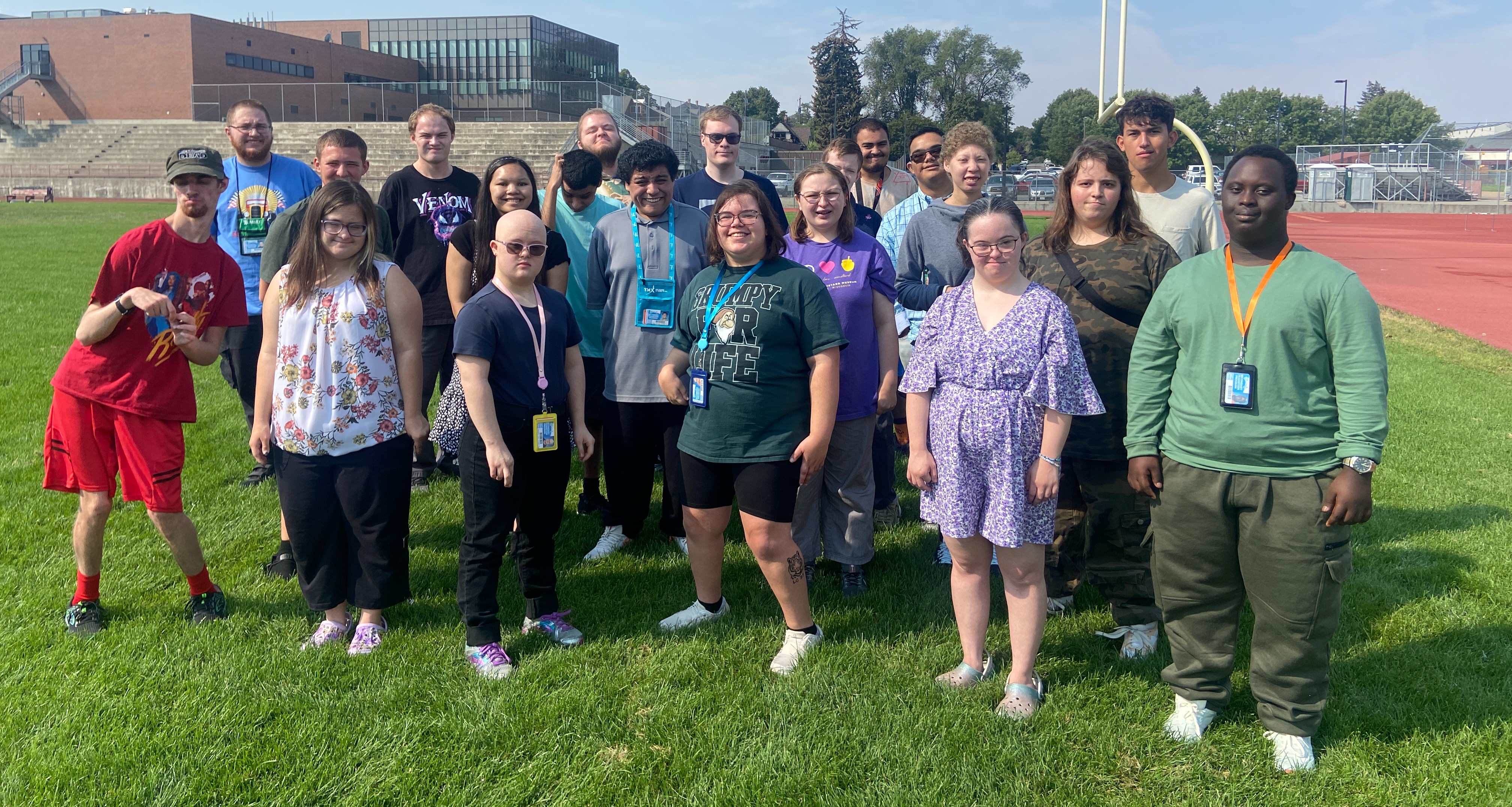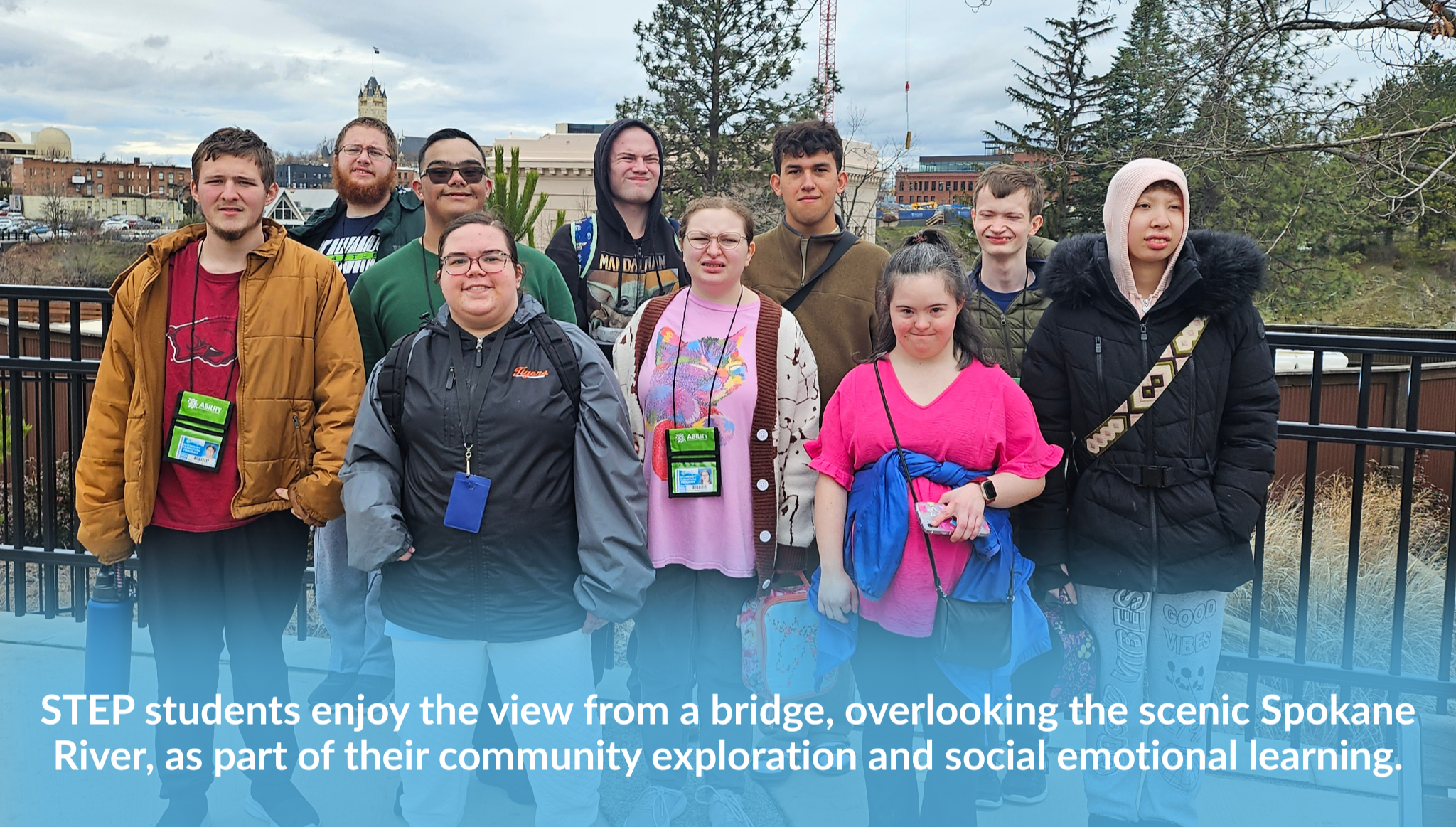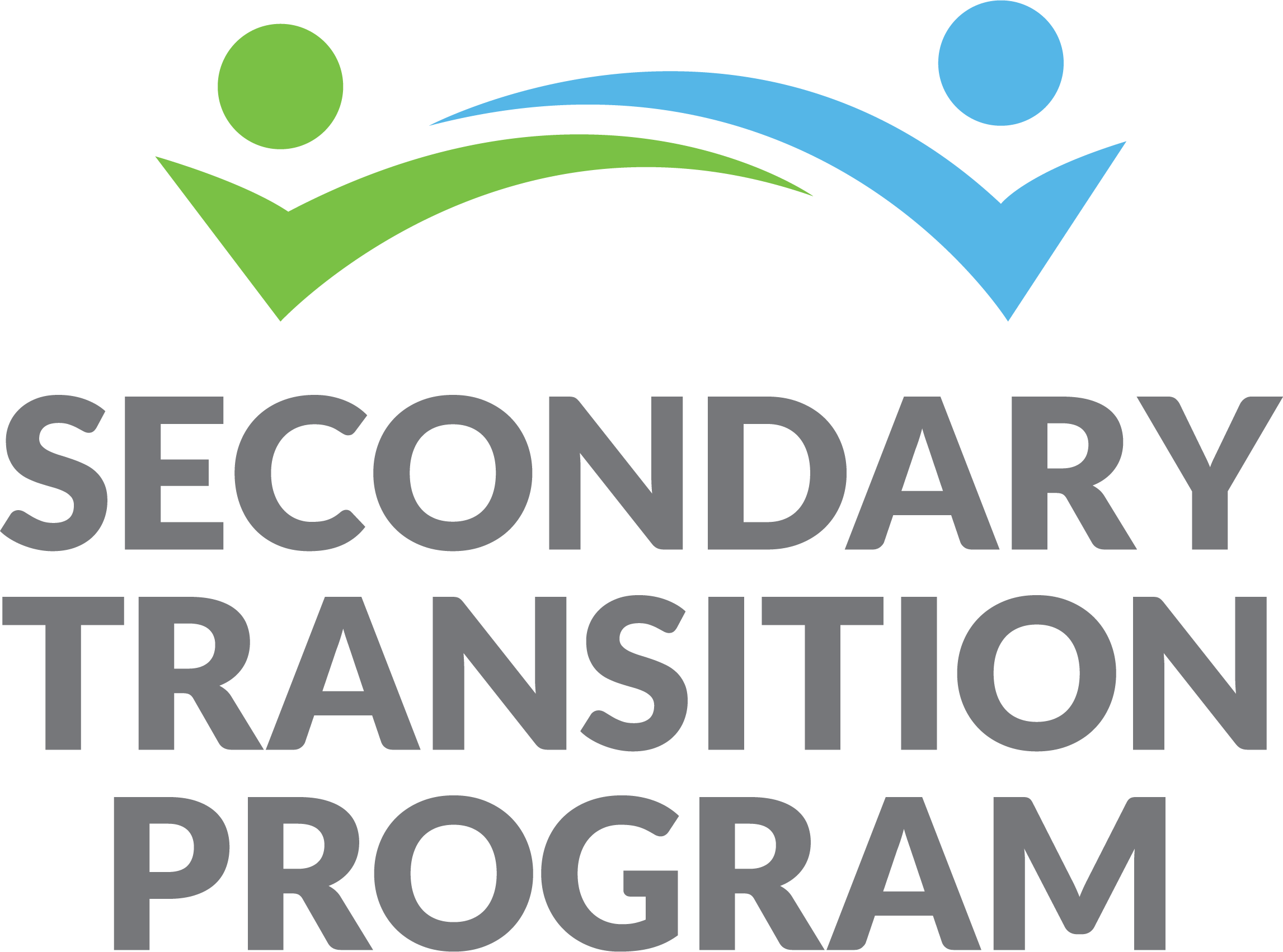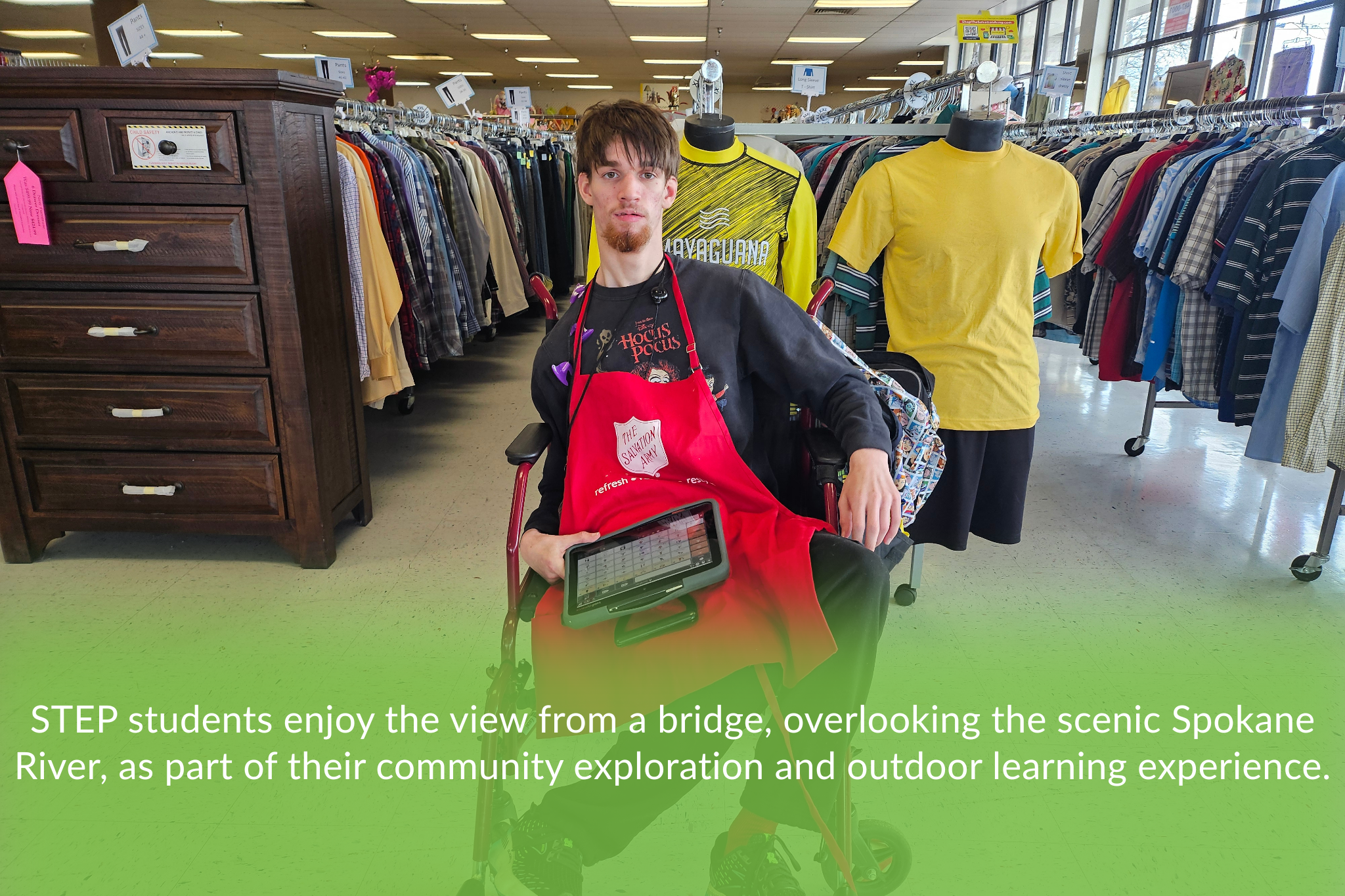STEP
Daily Living, Community Inclusion, and Unpaid Internships
The Secondary Transition Employment Program (STEP) is designed to support young adults with significant cognitive and adaptive challenges, ages 18-22. The program focuses on helping students build essential life skills and gain hands-on experience to foster greater independence, both in the community and the workforce. With a strong emphasis on vocational training, community inclusion, and life skills development. STEP ensures that each participant receives individualized support tailored to their unique needs.
Location
1807 N Washington (site is independent of comprehensive school)

Program Description
STEP provides a structured, supportive environment where students can learn practical skills through a combination of classroom instruction and real-world experience. With personalized guidance from teachers and job coaches, students gain the confidence and competence to succeed in both social and work settings.
Key Areas of Focus:
Daily Living Skills:
Understanding and using money
Meal etiquette and personal hygiene
Healthy Relationships
Time management (telling time and following schedules)
Pedestrian safety (crossing streets)
Mobility (using public transportation, ie. Paratransit and/or city bus)
Social skills, including conversation, self-advocacy, and requesting help or breaks
Work Experience and Volunteering:
Pre-vocational training
Volunteering in local businesses and organizations
Job readiness skills, including communication, task completion, and teamwork
Community Inclusion:
Encouraging positive recreational experiences
Socializing and engaging in community activities
Internship Opportunities
STEP connects students to internships that are aligned with their skills and interests. Potential internship areas include:
Administrative/Office Support
Customer Service
Materials Handling
Food Service
Hospitality
Environmental Services
Utility Maintenance
Each internship is designed to provide real-world work experience while allowing students to develop the independence and skills needed for successful employment.
Community
As part of the secondary transition process, we focus on connecting students to their community by linking them with local nonprofits, afterschool activities, and additional resources. This helps students build a network of support and gain valuable life skills outside the classroom. By participating in community activities, students engage in meaningful experiences that reflect their interests and goals, helping them build a sense of belonging and purpose. These connections also open doors to further educational and employment opportunities, ensuring students have the tools and resources they need for a successful transition into adulthood.

Program Schedule
A typical week for students consists of a variety of activities designed to support both personal and professional growth.
Monday: The week begins with either a guest speaker from the community or an outing in the community. We spend time practicing recreation and leisure activities. Some include, but not limited to, bowling, eating lunch at the local malls, visiting the Planetarium, visiting college campuses, enjoying local parks, etc). Some guest speakers have included local employment agencies, Special Olympics, and other agencies that offer services for individuals with disabilities.
Tuesday–Thursday: Students split their time between classroom learning and hands-on experience at their internships, gaining valuable real-world skills.
Friday: Fridays are dedicated to Healthy Relationships, Pre-ets (through DVR), People 1st (Self-Advocacy), social opportunities and recreation/leisure. Students engage with their peers and the community through social and emotional learning activities, building connections and having fun.
Prerequisite Skills
Students in STEP should be able to demonstrate the following basic abilities with support:
Feed themselves with proper utensils
Use the bathroom and wash hands independently with minimal prompts
Remain in designated areas without eloping or running from staff
Refrain from verbally, physically, or sexually inappropriate behaviors
Students are willing and wanting to participate in the program
Our team of teachers and job coaches provides personalized, consistent support, ensuring that every student’s unique needs are met and that they can progress at their own pace.
Application Process
Starting the first school day of November, Case Managers can submit the Secondary Transition Application for students interested in the program. The deadline to apply is the last school day of January.

